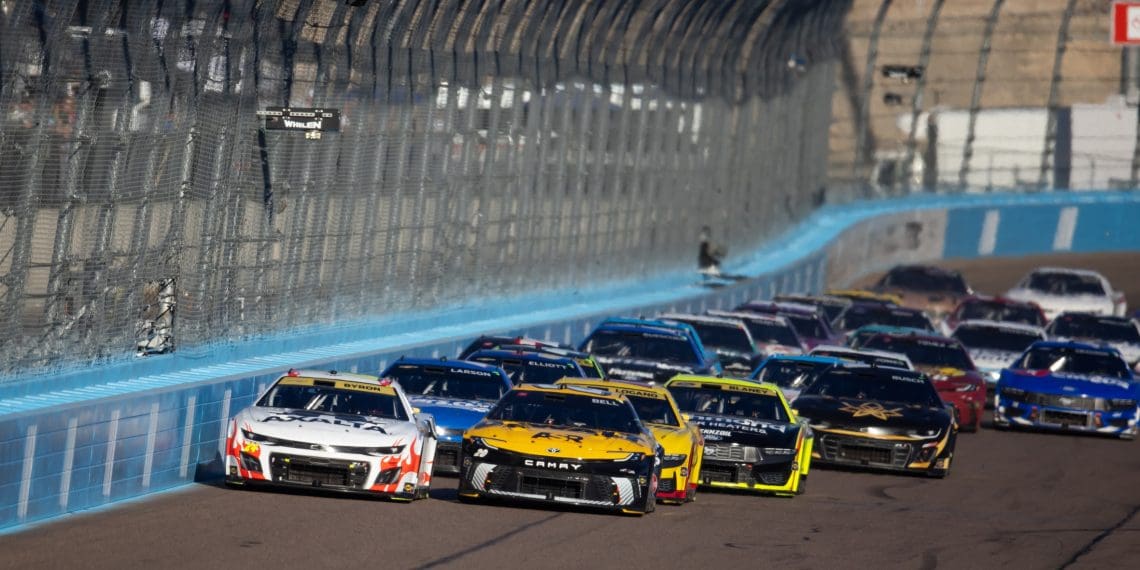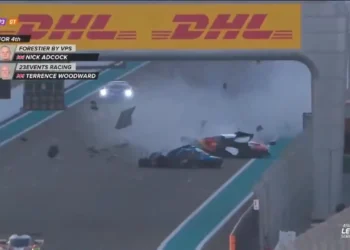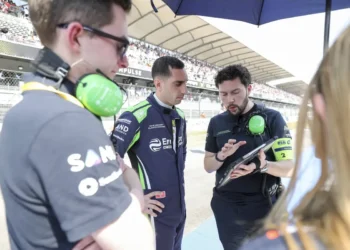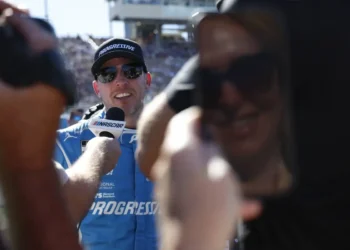The 2024 NASCAR season may be in the books, but debates over the sport’s playoff format rage on. Joey Logano’s dramatic playoff run, which culminated in a championship despite an inconsistent season, has sparked criticism from fans and drivers alike—including RFK Racing’s Brad Keselowski.
Logano’s improbable run raises eyebrows
Logano’s 2024 campaign was a tale of two seasons. A non-factor for much of the regular season, he caught fire in the playoffs, winning three races—including a chaotic quintuple-overtime event at Nashville Superspeedway—and clinching the title after benefiting from a penalty to Alex Bowman. While his late-season heroics captivated some, they also highlighted what many see as flaws in NASCAR’s current playoff system.
Under a total points format, which NASCAR used before 2004, Logano wouldn’t have been close to contending for the championship, finishing 16th overall. Meanwhile, Kyle Larson, who won six races in 2024, would have been crowned champion, edging Christopher Bell by just five points.
Keselowski critiques the playoff format
Brad Keselowski, a NASCAR veteran with two decades of experience, didn’t mince words when discussing the current system. Speaking on Dale Jr. Download’s Business of Motorsports episode, Keselowski reflected on his own frustration with the format, particularly during the 2020 season when he narrowly missed a championship despite a stellar year.
“We won four races, I think, finished 2nd at Phoenix, and missed out on the championship,” Keselowski said. “You almost forget about the races you won or all the success you got… The current format, in my opinion, has some flaws.”
Keselowski’s comments echo the sentiments of fans and critics who believe that the system prioritizes singular moments over season-long consistency.
A system that rewards moments over merit
The current “win and you’re in” format has made NASCAR’s playoffs thrilling but controversial. Tyler Reddick’s dramatic last-lap double overtake at Homestead-Miami secured his spot in the Championship 4, a moment celebrated by fans and media alike. However, it came at the expense of consistency.
Reddick’s 23XI Racing teammate, Bubba Wallace, had a better average finish throughout the playoffs and notched more top-10 finishes than Reddick, yet didn’t advance. Wallace’s solid performance in the championship race, finishing just one spot behind Reddick with nothing on the line, further underscored the format’s perceived imbalance.
The case for a return to the old system
NASCAR’s playoffs have evolved significantly since the introduction of the “Chase” in 2004 and the elimination format in 2014. While the system generates excitement and drama, critics argue that it undermines the sport’s integrity by allowing streaky performances to outweigh season-long excellence.
The 2024 season serves as a case study for these concerns. If total points determined the champion, Kyle Larson’s dominant year would have been rewarded. Instead, Logano’s late-season surge secured him the title, leaving many questioning the system’s fairness.
The road ahead: Will NASCAR reconsider?
As NASCAR gears up for the 2025 season, the playoff debate looms large. Drivers like Keselowski, along with many fans, are calling for changes that strike a balance between rewarding consistency and maintaining the excitement of the playoffs.
For now, Joey Logano’s 2024 championship will be remembered as a triumph of opportunism, but it also serves as a reminder that the debate over NASCAR’s playoff format is far from settled.










